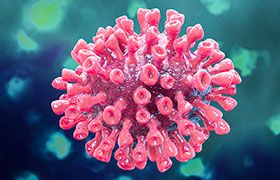Is you wear a facemask please keep this in mind:
1. The Coronavirus can live on the outside of your mask for up to 7 days.
https://www.thelancet.com/journals/lanmic/article/PIIS2666&#…3/fulltext
2. Don’t touch your mask.
3. Wash your hands frequently.
Here, we report the stability of SARS-CoV-2 in different environmental conditions.
We first measured the stability of SARS-CoV-2 at different temperatures. SARS-CoV-2 in virus transport medium (final concentration ∼6·8 log unit of 50% tissue culture infectious dose [TCID50] per mL) was incubated for up to 14 days and then tested for its infectivity (appendix p 1). The virus is highly stable at 4°C, but sensitive to heat. At 4°C, there was only around a 0·7 log-unit reduction of infectious titre on day 14. With the incubation temperature increased to 70°C, the time for virus inactivation was reduced to 5 mins.
We further investigated the stability of this virus on different surfaces. Briefly, a 5 μL droplet of virus culture (∼7·8 log unit of TCID50 per mL) was pipetted on a surface (appendix p 1; ∼cm2 per piece) and left at room temperature (22°C) with a relative humidity of around 65%. The inoculated objects retrieved at desired time-points were immediately soaked with 200 μL of virus transport medium for 30 mins to elute the virus. Therefore, this recovery of virus does not necessarily reflect the potential to pick up the virus from casual contact. No infectious virus could be recovered from printing and tissue papers after a 3-hour incubation, whereas no infectious virus could be detected from treated wood and cloth on day 2. By contrast, SARS-CoV-2 was more stable on smooth surfaces. No infectious virus could be detected from treated smooth surfaces on day 4 (glass and banknote) or day 7 (stainless steel and plastic).









Comments are closed.